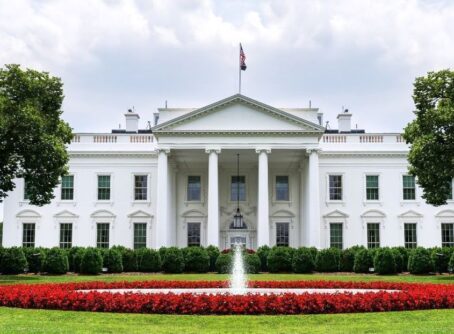
The Biden administration has issued a new regulation for foster care that is intended to ensure safe and appropriate care for LGBTQI+ children (the term used in the regulation). States are supposed to comply with it by October 1, 2026. This final version of the regulation maintains the harmful presumption that LGBTQ-identifying children need only affirmation and support and never encouragement to slow down and deeply explore whether their actual challenges are something else. Yet the original proposal was changed for the better in several key ways in response to comments, including a comment letter submitted by the Center for Public Justice and its Institutional Religious Freedom Alliance (IRFA) with others. Faith-based organizations that work for child welfare should consider carefully how they can continue their service in partnership with government, demonstrating through their work that their faith-based convictions support excellent care for all foster children.
The new regulation was proposed by the Administration for Children and Families (ACF), the section of the federal Department of Health and Human Services (HHS) that administers Title IV-E and IV-B programs of the child welfare system. A key goal is to promote specialized training of private organizations so that they can provide appropriate care for LGBTQ children. According to the new regulation, children who are identified by a state’s foster care agency or by themselves as LGBTQ, or those who make a request, must be able to choose care from such an organization. They may ask to be transferred away from their current placement provider or ask that it become qualified. In all of this, they must not suffer retaliation for revealing their status. Thus, states will have to ensure that they contract a sufficient number of specially trained providers to accommodate all foster children who need or request such a placement.
But note: the obligation is that state agencies be able to guarantee a specially trained provider, not that all providers must become specially trained. In fact, ACF gives a high estimate that 15% of placements will involve specially trained providers. Most providers do not need to undergo specialized training.
In the original proposal, the trained providers were labeled as organizations offering “safe and appropriate” placements to LGBTQ youth —with the strong, damaging, and incorrect implication that providers without specialized training are unwilling or unable to offer respectful and good care. But the finalized regulation is very different. Now, all providers and state agencies are reminded that they must give good care to every child, not only those who identify as LGBTQ. Now, providers that choose specialized training are called “designated placements,” without the implication that other providers may be unsafe for LGBTQ foster children. And, now, the regulation specifically says that no state agency may exclude or penalize a provider for declining to receive specialized training to become a “designated placement” (new subsection (j)). In its explanation, ACF stresses the valuable role of faith-based providers in foster care and says that it is “important to retain a diverse set of agencies to serve diverse populations.” It notes that the foster care funding it allocates to states is governed by the faith-based initiative’s “equal treatment” rules that require states not to be biased against faith-based organizations but instead to protect their religious character and practices.
The finalized regulation also includes a new subsection stating, “Insofar as the application of any requirement . . . would violate applicable Federal protections for religious freedom, conscience, and free speech, such application shall not be required” (subsec. (i)). Providers that object to a requirement will contact their state’s foster care agency, which will send the request to ACF. Faith-based providers that object to informing foster children about the possibility of a “designated placement” can ask the state agency to provide the information. States, ACF says, must accommodate religious objections while “ensur[ing] that faith-based organizations are eligible on the same basis as any other organization to participate in child welfare programs.” A state must not push out of the partnership a faith-based provider that has asked for an accommodation unless ACF has stated that it will not permit the accommodation and the provider insists that it must have it.
The comment CPJ and IRFA submitted, along with others, asked ACF to encourage the development of specialized training in the care for LGBTQ children that would respect and draw on the views and understandings of morally conservative faith communities. We asked ACF to encourage states to include such training among the options for private organizations seeking to become “designated placements.” ACF declined to be so prescriptive about training. However, the final regulation, more clearly than the original proposal, names harmful actions that are prohibited in caring for LGBTQ foster children rather than implying that providers and social workers with particular convictions about sexuality or religion can be suspected of hostility to such children. ACF warns that providers must not punish or disparage children because they are LGBTQ, but it also says that “good faith and respectful efforts to communicate with [such] children about their status or identities” are not forbidden.
The regulation ought to be better. ACF ought to clearly state, in its discussion about the regulation and in the regulatory text, that the requirement for state agencies, providers, social workers, and foster parents is to respect LGBTQ children, not necessarily to affirm their feelings or asserted identities. Despite all of the positive changes, the final regulation wrongly maintains the presumption that affirmation is what LGBTQ-identifying and -inclining children need and deserve.
It is appropriate for ACF and the state foster care agencies to require safe and respectful treatment of all foster children, including LGBTQ children. It is appropriate for ACF to promote specialized training about care for children who may be especially vulnerable or who may have suffered particular traumas. Faith-based providers, and also faith communities, with their commitment to the love of neighbor and their many and varied groups and organizations dedicated to children and youth, have played and ought to continue to play major roles in the foster care system. This ACF regulation, imperfect though it is, includes special features designed to keep faith-based organizations in the foster care system. Faith-based providers should consider carefully and prayerfully how they may continue to offer their distinctive, faith-shaped services to foster children.
Stanley Carlson-Thies is the Founder and Senior Director of the Institutional Religious Freedom Alliance (IRFA), a program of the Center for Public Justice.




